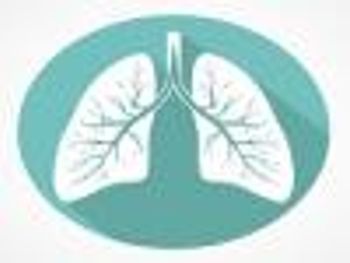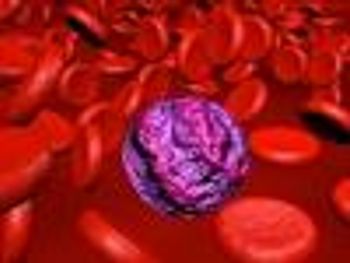
Significant progress has been made in gene therapy research and development over the years, with promise to treat and cure some of the most complex diseases.

Significant progress has been made in gene therapy research and development over the years, with promise to treat and cure some of the most complex diseases.

The FDA has issued disease-specific draft guidances for the development of gene therapies for certain conditions.

Nivolumab (Opdivo) plus ipilimumab (Yervoy) approved for patients with microsatellite instability high or mismatch repair deficient metastatic colorectal cancer that has progressed following treatment with a fluoropyrimidine, oxaliplatin, and irinotecan.

Research to explore whether intermittent fasting can improve symptoms in patients with relapsing-remitting multiple sclerosis.

Olaparib (Lynparza, Merck and AstraZeneca) demonstrated significant improvement in progression-free survival in the first-line maintenance setting for women with advanced BRCA-mutated ovarian cancer.

Officials with the FDA are requiring safety label updates for fluoroquinolone antibiotics due to risks of mental health adverse effects, and blood sugar disturbances.

Even as fewer patients are using them, the 10 medications with the highest spend in Medicare Part D have seen substantial increases in spending and out-of-pocket costs.

Officials with the FDA are requiring safety label updates for fluoroquinolone antibiotics due to risks of mental health adverse effects and blood sugar disturbances, according to a press release

Results from a phase 3 study and post-hoc analysis highlight the use of galcanezumab-gnlm (Emgality, Eli Lilly) for the treatment of episodic cluster headache and migraine.

The updated labeling will strengthen warnings for mental health adverse effects and risks related to hypoglycemia.

In the phase 3 PALOMA-3 trial, Pfizer’s palbociclib (Ibrance) narrowly missed reaching its secondary endpoint of overall survival (OS), according to a press release.

The PALOMA-3 trial evaluated palbociclib (Ibrance) in combination with fulvestrant in women with hormone receptor-positive (HR+), human epidermal growth factor receptor 2-negative (HER2-) metastatic breast cancer.

A new, inexpensive diagnostic test can help identify patients who require immediate treatment for hepatitis B virus across Africa.

Multiple sclerosis risk increased significantly in individuals with occupational exposure to organic solvents.

Researchers have developed a laser-sonic scanner with the ability to detect tumors in as little as 15 seconds.

Using a DNA test to identify genetic variants in men that increase the likelihood of prostate cancer may help guide interventions for those at high risk and improve disease prevention.

Using real-time symptom reports, a well-trained classification algorithm can detect lymphedema more accurately than current clinical methods.

Atezolizumab (Tecentriq, Roche) plus chemotherapy nab-paclitaxel (Abraxane) met its co-primary endpoint of progression-free survival in patients with metastatic triple-negative breast cancer.

Atezolizumab (Tecentriq) plus chemotherapy nab-paclitaxel (Abraxane) significantly reduced the risk of disease worsening or death in patients with metastatic triple-negative breast cancer.

An investigational anti-cancer vaccine will be paired with nivolumab to determine whether the combination therapy will improve survival in patients with the disease.

Glasdegib, in addition to chemotherapy, offers an additional treatment option for patients with acute myeloid leukemia who are ineligible for intensive chemotherapy.

Patients with melanoma who were treated with a combination of radiosurgery and anti-PD-1 immunotherapy experienced better outcomes compared with patients who received anti-CTLA4 immunotherapy.

The FDA has granted approval to Array BioPharma’s encorafenib (Braftovi) capsules in combination with binimetinib (Mektovi) tablets for the treatment of patients with unresectable or metastatic melanoma with BRAFV600E or BRAFV600K mutation.

The FDA has granted approval to Array BioPharma’s encorafenib (Braftovi) capsules in combination with binimetinib (Mektovi) tablets for the treatment of patients with unresectable or metastatic melanoma with BRAFV600E or BRAFV600K mutation.

Encorafenib (Braftovi) and binimetinib (Mektovi) is now available for patients with advanced BRAF-mutant melanoma.

Researchers identified a trend in which higher body mass index was associated with lower breast cancer risk in women before menopause.

African Americans are more likely to be diagnosed with HIV compared with other groups, according to an analysis published in the Journal of Racial and Ethnic Health Disparities.

Although HIV diagnoses have dropped across every population in the United States, African Americans remain disproportionately affected by HIV.

New data demonstrate that evolocumab (Repatha) significantly reduced low-density lipoprotein cholesterol and non-high density lipoprotein cholesterol in patients with type 2 diabetes plus hypercholesterolemia or mixed dyslipidemia.

A novel epigenetic drug can be combined with an existing therapy, venetoclax, to more effectively kill high-risk neuroblastoma cells.